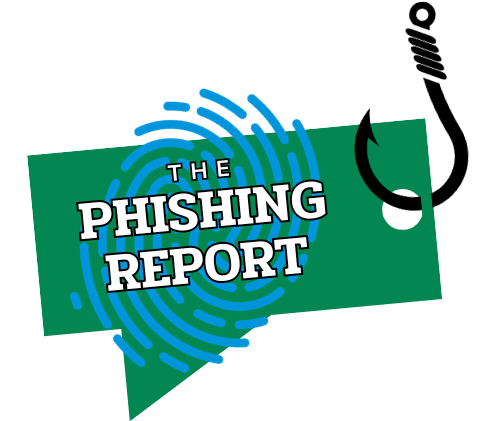You need to ensure compliance with managed IT services to meet regulatory requirements, maintain data security, and uphold industry-specific mandates.
Managed IT services provide a proactive approach to monitoring and reporting, helping you stay ahead of privacy and confidentiality measures.
By partnering with a managed IT services provider, you can navigate the complexities of compliance with ease.
Key Takeaways
- Adhering to specific regulatory compliance requirements is crucial for organizations utilizing managed IT services.
- Implementing data security standards, such as encryption and network security measures, is essential to protect sensitive information.
- Different industries have their own specific mandates, such as HIPAA regulations in healthcare and PCI DSS standards in financial institutions, that must be followed.
- Privacy and confidentiality measures, including privacy regulations like GDPR and HIPAA, should be implemented to ensure the protection of personal and sensitive data.
Regulatory Compliance Requirements
You need to adhere to specific regulatory compliance requirements when utilizing managed IT services to ensure legal and industry standards are met. Compliance audits and risk assessments are essential components in this process.
Compliance audits involve assessing whether your managed IT services adhere to the relevant laws, regulations, and industry standards. They help identify any areas of non-compliance and provide an opportunity to rectify them before facing any legal consequences.
On the other hand, risk assessments help in identifying, analyzing, and evaluating potential risks that could arise from non-compliance. By conducting regular risk assessments, you can proactively address any vulnerabilities in your IT systems and processes, thus reducing the likelihood of non-compliance issues.
Transitioning into the subsequent section about ‘data security standards’, it’s important to note that a robust regulatory compliance framework is crucial for ensuring the security of your data. Compliance with industry standards and regulations not only helps in meeting legal requirements but also plays a significant role in maintaining data security standards.
Data Security Standards
Adhering to data security standards is essential for ensuring the protection of sensitive information within your managed IT services. Data encryption plays a crucial role in safeguarding your data from unauthorized access. By encrypting your data, you can ensure that even if it’s intercepted, it remains unreadable to anyone without the proper decryption key. This is a fundamental aspect of data protection that helps to secure your information both at rest and in transit.
In addition to data encryption, network security is equally important in maintaining data security standards. Implementing robust network security measures, such as firewalls, intrusion detection systems, and regular security audits, helps to fortify your IT infrastructure against potential cyber threats. Access control also plays a significant role in data security. By establishing granular controls over who can access specific data and systems, you can minimize the risk of unauthorized access and data breaches.
Ensuring compliance with data security standards not only protects your sensitive information but also helps to build trust with your clients and stakeholders. It demonstrates your commitment to upholding the highest standards of data protection and security. As you navigate the complexities of data security standards within managed IT services, it’s essential to also consider industry-specific mandates that may impose additional requirements to safeguard sensitive data.
Industry-Specific Mandates
To ensure compliance with managed IT services, it’s crucial to adhere to industry-specific mandates that govern the handling and protection of sensitive data. Different industries have their own set of regulations and standards that dictate how data should be managed and protected.
For example, healthcare organizations must comply with HIPAA regulations to ensure the security and privacy of patient information, while financial institutions need to adhere to PCI DSS standards to safeguard sensitive financial data. These industry-specific regulations are designed to address the unique challenges and requirements of each sector, ensuring that sensitive information is adequately protected from unauthorized access or breaches.
Compliance with industry-specific mandates can present significant challenges for organizations. It often requires a deep understanding of complex regulatory requirements and the ability to implement robust security measures to achieve and maintain compliance. Moreover, as technology and regulatory landscapes evolve, staying abreast of these changes and ensuring continued adherence to industry-specific mandates can be a daunting task.
Organizations need to regularly assess and update their IT infrastructure and security practices to align with the latest regulatory requirements, which demands significant time and resources.
Privacy and Confidentiality Measures
Maintaining privacy and confidentiality is essential for ensuring compliance with managed IT services. Privacy regulations and cybersecurity measures play a crucial role in safeguarding sensitive data and ensuring that your organization meets all necessary compliance standards. To achieve this, it is important to implement robust privacy and confidentiality measures within your IT infrastructure.
The following table illustrates key privacy and confidentiality measures that are vital for compliance with managed IT services:
| Privacy Regulations | Cybersecurity Measures |
|---|---|
| Compliance with GDPR | Implementation of multi-factor authentication |
| Adherence to HIPAA | Encryption of sensitive data |
| Following CCPA | Regular security audits and assessments |
| Conforming to PCI DSS | Intrusion detection and prevention systems |
Adhering to privacy regulations such as the General Data Protection Regulation (GDPR), the Health Insurance Portability and Accountability Act (HIPAA), the California Consumer Privacy Act (CCPA), and the Payment Card Industry Data Security Standard (PCI DSS) is essential for maintaining compliance. Additionally, implementing cybersecurity measures such as multi-factor authentication, data encryption, security audits, and intrusion detection systems is crucial for protecting sensitive information from unauthorized access and ensuring compliance with managed IT services.
Monitoring and Reporting Obligations
When managing IT services, ensuring compliance involves actively monitoring and reporting on security measures.
Monitoring effectiveness is crucial in identifying and addressing any potential security breaches or vulnerabilities in real time. By continuously monitoring the IT infrastructure, you can promptly detect any unauthorized access attempts, unusual network traffic patterns, or other suspicious activities that may compromise data security. This proactive approach allows for immediate intervention to mitigate risks and safeguard sensitive information.
In addition to monitoring, accurate reporting is essential for demonstrating compliance with regulations and industry standards. It involves providing detailed and precise reports on security incidents, compliance status, and any remedial actions taken. Accurate reporting not only ensures transparency and accountability but also enables informed decision-making to further enhance security measures. By maintaining comprehensive records and documentation, you can effectively track the implementation of security controls and demonstrate adherence to compliance requirements.
Furthermore, regular reporting provides valuable insights into the overall state of IT security, enabling organizations to assess the effectiveness of their security measures and identify areas for improvement. It also serves as a means of communication with relevant stakeholders, such as regulatory authorities, auditors, and internal governance bodies. By consistently delivering accurate and comprehensive reports, you can instill confidence in the reliability and integrity of your IT infrastructure and compliance efforts.
Frequently Asked Questions
How Can Managed IT Services Help Businesses Stay Compliant WITh International Data Privacy Laws Like GDPR and Ccpa?
Managed IT services can help businesses stay compliant with international data privacy laws like GDPR and CCPA. By providing technology solutions for secure data management and risk mitigation, outsourcing IT management can offer expert guidance and support to ensure legal compliance. This includes implementing robust security measures, regular assessments, and updates to adapt to evolving regulations.
With managed IT services, businesses can focus on their core business while staying ahead of compliance requirements.
Are There Specific Data SecurITy Standards That Managed IT Services Providers Must Adhere to in Order to Ensure Compliance for Their Clients?
To ensure compliance, managed IT services providers must adhere to specific data security standards. This includes implementing data encryption and robust network security measures.
They conduct compliance audits and thorough risk assessments to identify and mitigate potential vulnerabilities.
What Industry-Specific Mandates Do Managed IT Services Providers Need to Be Aware of in Order to Support Clients in Highly Regulated Industries Such as Healthcare or Finance?
In highly regulated industries like healthcare or finance, you need to be aware of industry-specific regulations to support your clients effectively. Compliance challenges are a significant concern, and understanding the mandates that govern these industries is crucial.
You must stay updated on data security standards and privacy regulations to ensure your managed IT services align with the requirements. It’s essential to prioritize compliance to meet the specific needs of clients in these industries.
How Do Managed IT Services Providers Ensure the Privacy and Confidentiality of Sensitive Data, Especially in Light of Increasing Cyber Threats?
To ensure the privacy and confidentiality of sensitive data, especially with increasing cyber threats, you implement robust privacy safeguards and continuously update your cyber threat mitigation strategies.
Regularly assess your security measures, employ encryption, and restrict access to authorized personnel only.
Stay informed about the latest cyber threats and adapt your defenses accordingly.
What Are the MonIToring and Reporting Obligations That Managed IT Services Providers Have in Place to Demonstrate Compliance to Their Clients and Regulatory Authorities?
You maintain compliance by implementing robust monitoring tools, ensuring data privacy controls, and bolstering cybersecurity measures.
Compliance reporting showcases your adherence to regulatory requirements and client expectations. By diligently monitoring and promptly reporting any deviations, you demonstrate your commitment to upholding compliance standards.
Your proactive approach and transparent reporting not only reassure clients but also exhibit your dedication to safeguarding sensitive data and mitigating cybersecurity risks.
Final Thoughts
So, as you can see, ensuring compliance with managed IT services is essential for your business’s success.
By staying on top of regulatory requirements, data security standards, industry-specific mandates, and privacy measures, you can protect your company from potential risks and liabilities.
Remember, when it comes to monitoring and reporting obligations, staying proactive is key to maintaining a secure and compliant IT environment.
So, keep up the good work and stay vigilant! Your business depends on it.

